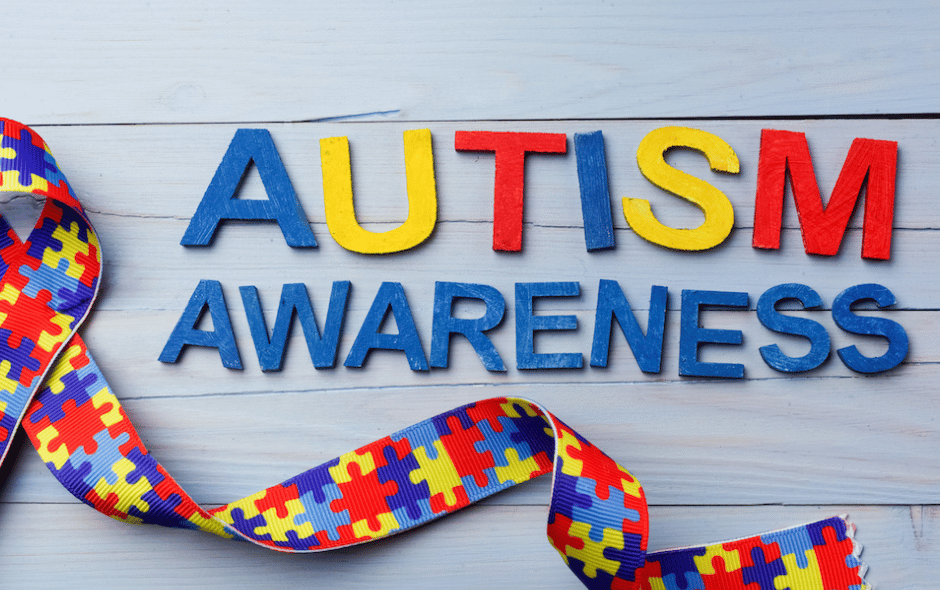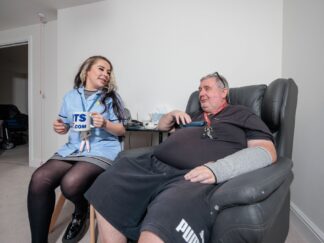
This month is Autism Acceptance Month, raising awareness for Autism and the signs, symptoms and prejudice against those with the condition. There are over 1 million people in the UK (both adults and children) who are on the Autism spectrum, with even more who are undiagnosed, specifically adults and those over the age of 50. For Autism Acceptance Month, we aim to raise awareness for the signs and symptoms of Autism, as well as discourage discrimination and prejudice to those who are on the Autism spectrum.
What is Autism?
Autism is categorised as neurodevelopment disorder that results in a decrease of social developmental skills and often results in the presence of restrictive/repetitive behaviour. This condition was formerly known as Autism Spectrum Disorder (ASD) as Autism is often different for each individual, therefore Autism is referred to as a spectrum, which refers to the wide range of symptoms and severity each individual with the condition can have.
Autism symptoms
Whilst Autism is not limited to specific signs or symptoms, some of the main symptoms of Autism include:
- You struggle with picking up on other people’s emotions.
- You struggle with social cues.
- You struggle to understand phrases or sayings (e.g: “apples and pears” for stairs) and often take things literally.
- You find it hard to express emotion.
- You find it hard to keep emotions balanced.
- You often go off on tangents during conversations.
- You struggle to make eye contact.
- You don’t like to make changes to your routine.
- You often carry out repetitive behaviours.
- You find yourself fixating on one thing for a long time, and often become obsessive with this topic.
High-functioning Autism
Even if you experience one or more of these symptoms, you may have what is considered ‘high-functioning autism’. This is often left undiagnosed for years and can be hard to detect, especially in early childhood. The goal of Autism Acceptance Month is to raise awareness for the symptoms of autism to decrease the amount of children and adults who have undiagnosed autism. It is estimated that around 750,000 people in the UK have diagnosed suspected autism; if you are experiencing one or more of these symptoms, get in contact with your GP to talk about a possible Autism diagnosis.
To find out more about signs and symptoms of Autism, please visit the NHS website here.
High-functioning Autism
Even if you experience one or more of these symptoms, you may have what is considered ‘high-functioning autism’. This is often left undiagnosed for years and can be hard to detect, especially in early childhood. The goal of Autism Acceptance Month is to raise awareness for the symptoms of autism to decrease the amount of children and adults who have undiagnosed autism. It is estimated that around 750,000 people in the UK have diagnosed suspected autism; if you are experiencing one or more of these symptoms, get in contact with your GP to talk about a possible Autism diagnosis.
To find out more about signs and symptoms of Autism, please visit the NHS website here.
How can I take part in Autism Acceptance Month?
If you would like to take part in Autism Acceptance Month, and would like to help raise awareness for the signs and symptoms of Autism and challenge misconceptions about the condition, you can:
- Attend seminars talking about Autism.
- Participate in charity events.
- Participate in sponsored runs/walks/etc to raise awareness.
- Donate to a local Autism charity.
- Challenge discrimination and misconceptions head on (for example, if someone says a negative comment about those who have Autism, or try to spread false information about Autism).
- Ask someone you know with Autism about their condition, and how you can support them further.
- Celebrate the successes of those who have Autism.
What are we doing to raise awareness for Autism?
Here at MCJA, every month is Autism Acceptance Month – we provide care to over 850 service users, with number of those on the Autism spectrum (for more information about the care that we provide, please visit our ‘Services’ page by clicking here). We also abide by the Equality Act (2010), ensuring that all of our employees are treated equally and fairly, with a number of our staff members also on the Autism spectrum.
So, it is our goal to ensure that we are taking part in Autism Acceptance Month, and continuing to raise awareness throughout the year about the condition.
More information
To keep up to date with other Awareness months, please visit our ‘News’ page here
Social Media
And to keep up to date with what we get up to, please visit our socials by clicking the links below.
Our partners































